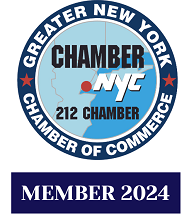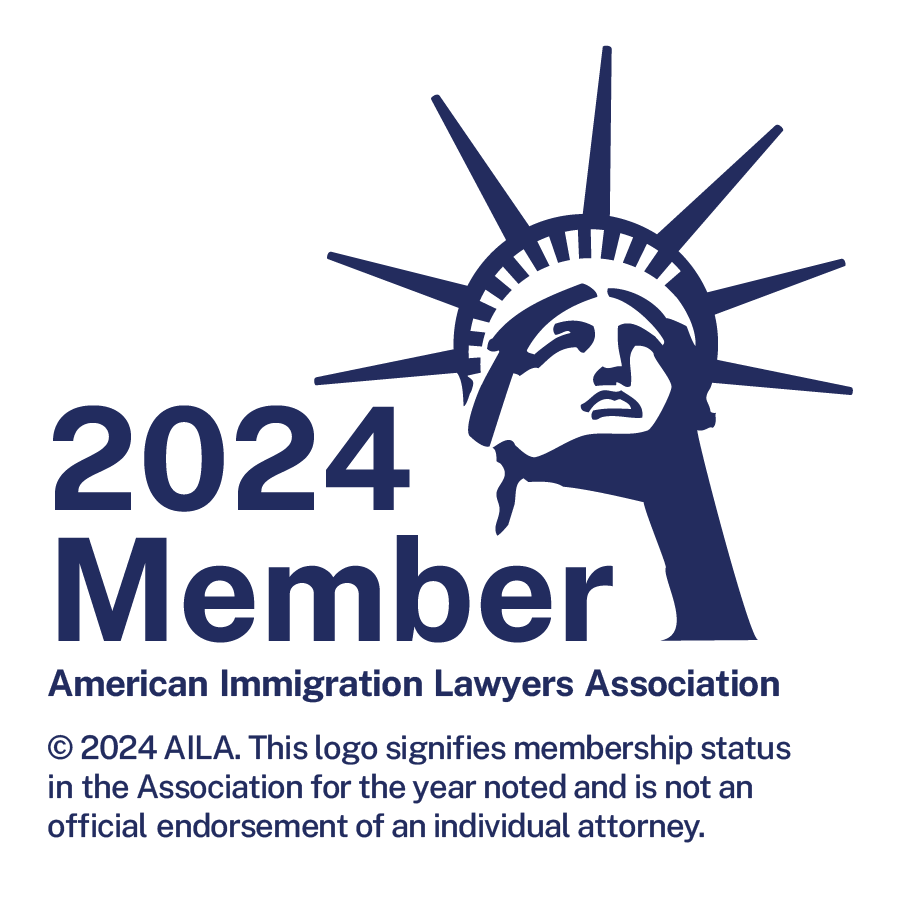Employment-Based Immigration (EB-1, EB-2, EB-3, EB-4, EB-5)
EB-1 (First Preference):

Who qualifies as a Priority Worker for EB-1 category?
- Individuals with extraordinary ability in the sciences, arts, education, business, or athletics;
- Outstanding professors and researchers; or
- Certain multinational managers and executives.
When does a family of Eb-1 visa holders qualify to apply for a Green Card?
Once the principal applicant’s I-140 petition is approved, spouse and unmarried children under the age of 21 may be eligible to apply for admission to the United States in E-21 and E-22 immigrant status, respectively.EB-2 (Second Preference):
Professionals with Advanced Degrees or Exceptional Ability: This category includes individuals with advanced degrees (beyond a bachelor’s degree) or those with exceptional ability in their field. The employer must obtain a certified Application for Permanent Employment Certification from the Department of Labor before filing Form I-140, Petition for Alien Worker with USCIS. Certain professional nurses and physical therapists qualify to file Form I-140, with an uncertified ETA Form 9089 for consideration as Schedule A
National Interest Waiver (NIW): Individuals whose work is in the interest of the United States may be eligible for a waiver of the job offer and labor certification requirements if they can demonstrate that their work benefits the nation significantly.
The endeavors that qualify for a national interest waiver are not defined by statute; instead, USCIS considers the 3 factors test.
An employer as a sponsor is not required while seeking a national interest.
What are the factors USCIS Considers for a National Interest Waiver?
- The proposed endeavor has both substantial merit and national importance.
- You are well-positioned to advance the proposed endeavor.
- On balance, it would benefit the United States to waive the requirements of a job offer and, thus, the labor certification.
When does a family of Eb-2 visa holders qualify to apply for a Green Card?
Once the principal applicant’s I-140 petition is approved, spouse and unmarried children under 21 may be eligible to apply for admission to the United States in E-21 and E-22 immigrant status, respectively.
EB-3 (Third Preference):
Skilled Workers, Professionals, and Other Workers qualify for the Eb-3 category. A permanent, full-time job offer is required. The employer must obtain a certified Application for Permanent Employment Certification from the Department of Labor before filing Form I-140, Petition for Alien Worker with USCIS.

Who is eligible for the EB-3 immigrant visa preference category?
- “Skilled workers” are persons whose jobs require a minimum of 2 years of training or experience, not of a temporary or seasonal nature. The skilled worker must meet the educational, training, or experience requirements of the job opportunity. Relevant post-secondary education may be considered as training.
- “Professionals” are persons whose job requires at least a U.S. baccalaureate or foreign equivalent degree and are members of the professions.
- The “other workers” subcategory is for persons performing unskilled labor requiring less than 2 years of training or experience, not of a temporary or seasonal nature.
When does a family of Eb-2 visa holders qualify to apply for a Green Card?
Once the principal applicant’s I-140 petition is approved, spouse and unmarried children under the age of 21 may be eligible to apply for admission to the United States in E34 (spouse of a “skilled worker” or “professional”) or EW4 (spouse of an “other worker”) and E35 (child of a “skilled worker” or “professional”) or EW5 (child of an “other worker”) immigrant status, respectively.EB-4 (Fourth Preference):
Special Immigrants such as religious workers, certain employees of U.S. foreign service posts, retired employees of international organizations, certain physicians, and others are eligible for an employment-based, fourth preference (EB-4) visa.
Who is eligible as a special immigrant for the fourth preference (EB-4) visa?
- Religious workers;
- Special Immigrant Juveniles;
- Certain broadcasters;
- Certain retired officers or employees of a G-4 international organizationor NATO-6 civilian employees and their family members;
- Certain employees of the U.S. government who are abroad and their family members;
- Members of the U.S. armed forces;
- Panama Canal company or Canal Zone government employees;
- Certain physicianslicensed and practicing medicine in a U.S. state as of Jan. 9, 1978; and,
- Noncitizens who have supplied information concerning a criminal organization or enterprise or a terrorist organization, enterprise, or operation(S nonimmigrants).
Some EB-4 classifications allow your spouse and unmarried children under the age of 21 to be admitted to the United States.
EB-5 (Immigrant Investor Program):
Immigrant Investor Program, known as EB-5 employment-based fifth preference visa paves way for immigration investors and their spouses and unmarried children under 21.
Congress created the EB-5 Program in 1990 to stimulate the U.S. economy through job creation and capital investment by foreign investors. In 1992, Congress created the Immigrant Investor Program, also known as the Regional Center Program, which sets aside EB-5 visas for participants who invest in commercial enterprises associated with regional centers approved by USCIS based on proposals for promoting economic growth.
USCIS administers the EB-5 Program. Under this program, investors (and their spouses and unmarried children under 21) are eligible to apply for lawful permanent residence (become a Green Card holder) if they:
- Make the necessary investment in a commercial enterprise in the United States; and
- Plan to create or preserve 10 permanent full-time jobs for qualified U.S. workers.
Practice areas
We offer consultations, representation, assistance and advice in the following areas:
- Employment-Based Immigration (EB-1, EB-2, EB-3, EB-4)
- Investment-Based Immigration (E-1, E-2- EB-5 Immigrant Investor Program)
- Family-Based Immigration (Immigration Petitions to Immediate Relatives/Marriage based Green Cards)
- K-1 Fiancé(e) Visa
- K-3 Visa for Spouse
- US Green Card (Permanent Residence)- Adjustment of Status/Consular Processing
- Replacement of Green Card/Renewal of Green Card
- Permanent Labor Certification (PERM)
- Change of Status and Extension of Status
- TN NAFTA Professionals (Canada/Mexico)
- Visas for Temporary Visitors
- B-1 Temporary Business Visitor Visa
- B-2 Visa (Visiting family and friends, tourism and vacation, medical treatment, transiting the US)
- Crew Visas(C-1/D)
- Deferred Action for Childhood Arrivals (DACA)
- Temporary Non-Immigrant Work Visas (H-1B, L-1A, L-1B, O-1, R-1, P-1A, P-1B, P-2, P-3, Q, H-1C, H-2A, H-2B,H-3, I, E-1, E-2, E-3)
- Form I-9 Compliance
- H-1B Specialty Occupation: H-1B Cap, H-1B Extensions, H-1B Transfers, H-1B Amendments, Cap Exempt H-1B, H-1B for Fashion Models
- H-1B1 Visa for Chileans/Singaporeans
- Registration to H-1B Cap
- Responding to H-1B RFEs
- L-1A Intracompany Transferee
- L-1A New Office
- Hague Adoption Certificate or Custody Declaration
- L-1B Specialized Knowledge
- R-1 Religious worker
- O-1 Extraordinary Ability or Achievements in Sciences, Education, Business, Athletics/Sports and Arts
- EB-1 Extraordinary Ability, Outstanding Professors and Researchers, Multinational Manager or Executive
- EB-2 National Interest Waivers
- Students Visas and Exchange Visitors and Employment (F-1, M-1, OPT, CPT, STEM OPT, J-1, Conrad 30 Waiver Program)
- Refugee/Asylee Relative Petition
- A, G, and NATO Visas and Renewing A, G, and NATO Visas in the United States
- Advance Parole
- Parole under Uniting for Ukraine
- Citizenship for Military Personnel & Family Members
- Immigration Relief for Survivors of Domestic Violence and Other Crimes (VAWA, U visa, T visa)
- Temporary Protected Status (TPS)
- Consular Matters (DS-160, DS-260, Waivers)
- US Citizenship and Naturalization
- Application for Citizenship Certificate
- Application for Naturalization
- Replacement of Citizenship/Naturalization certificates
- Temporary Protected Status (TPS)- Nepal, Nicaragua, Haiti, Honduras, Sudan, El Salvadore, Ukraine, and Afghanistan-EAD and EAD extensions
- Reporting Birth of U.S. Citizens and Non-Citizen Nationals Abroad - Consular Reports of Birth Abroad (CRBA)
- U.S. Citizenship for an Adopted Child
- Renunciation of U.S. Nationality Abroad
Steps to start your
plans off right
01
Select your section
02
Send an enquiry
03
Schedule a Consultation
So, what are you waiting for?
Let's start your process right away! Fill in the form and we'll get back to you.





